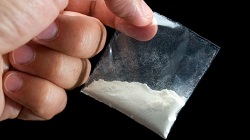A rare report tallying drug-related judicial cases in Argentina provides an insight into how drug crimes vary by region, and draws attention to the importance of tackling domestic consumption as part of the country’s security policy.
Argentina’s Attorney General’s Office for Drug-Related Crimes (Procuraduría de Narcocriminalidad – PROCUNAR) has published a report (pdf) documenting the cases opened by the federal justice system — which is divided into regional jurisdictions often spanning several provinces — for major and minor drug-related crimes in 2015.
Over the course of the year, 44 percent of all new federal criminal cases were for drug-related crimes. Of those drug cases, 46 percent of the total involved illegal trafficking, while 50 percent were for personal possession or consumption.
Of Argentina’s six judicial regions, Buenos Aires registered more than one third of the country’s drug-related cases, while Mendoza and Santa Fe saw the second and third largest shares, with 11 and 9 percent of all cases, respectively.
SEE ALSO: Coverage of Drug Policy
The Buenos Aires region — which includes the Buenos Aires province but not the autonomous capital city area — had the highest proportion of illegal trafficking cases compared to simple possession or personal use, at nearly 90 percent.
In Santa Fe district, 68 percent of all narcotics crimes involved trafficking — significantly higher than the national average. The province is home to the city of Rosario, an international drug transhipment hub that has been plagued by organized criminal activity.
On the other hand, in Mendoza district 62 percent of cases were for possession or personal consumption. Mendoza province, a traditional smuggling route into neighboring Chile, has recently seen a growth in its consumer market.
InSight Crime Analysis
Publications such as these help to evaluate the scope and nature of Argentina’s drug problem, but they are only rarely made available. The last Attorney General’s Office report of this kind covered the year 2012 (pdf).
Certain media reports have taken the Attorney General’s data as evidence that a 2009 Supreme Court ruling that made personal drug possession punishable by up to two years in prison has failed to significantly deter a rise in illicit drug consumption.
President Mauricio Macri, who took office in 2015, has taken a more militarized, strong-armed approach to drugs and crime. This approach may provide some short-term benefits by dismantling criminal organizations, but it will do little to address the underlying problem of increased drug consumption.

